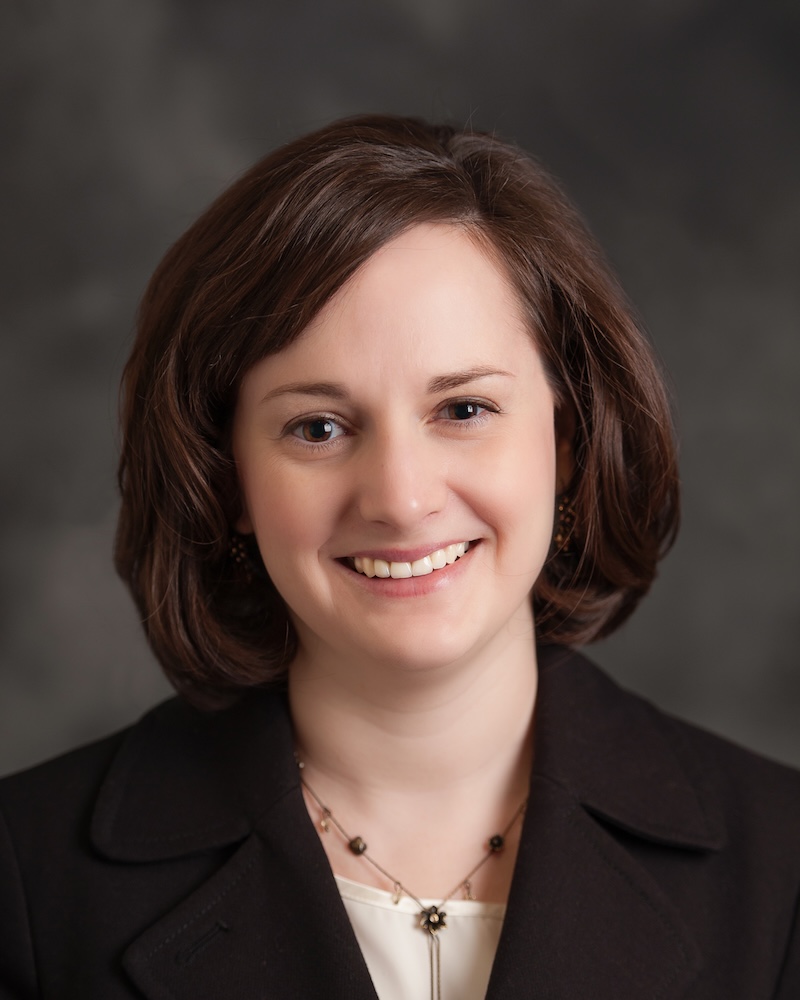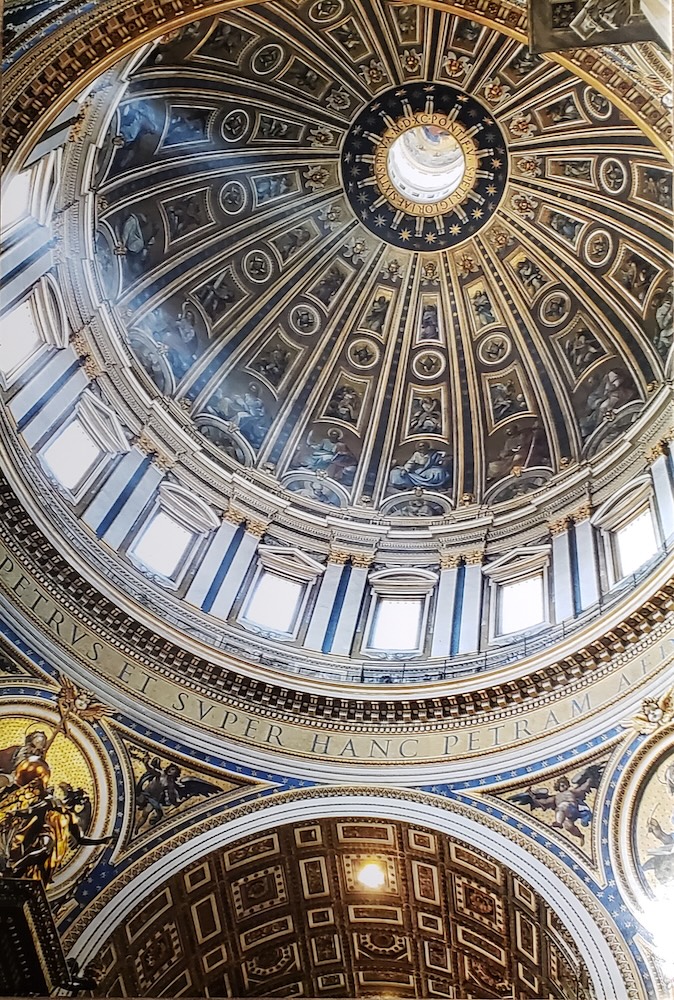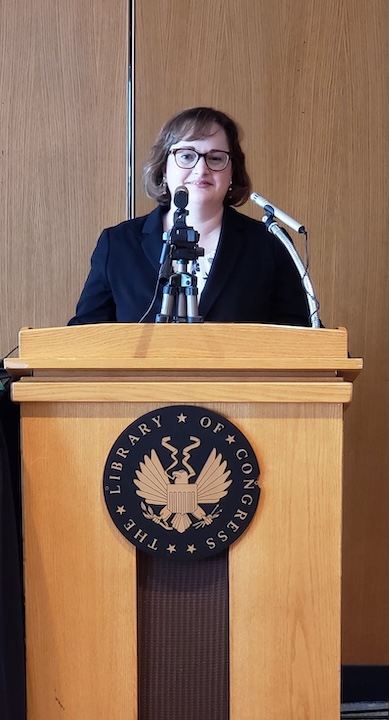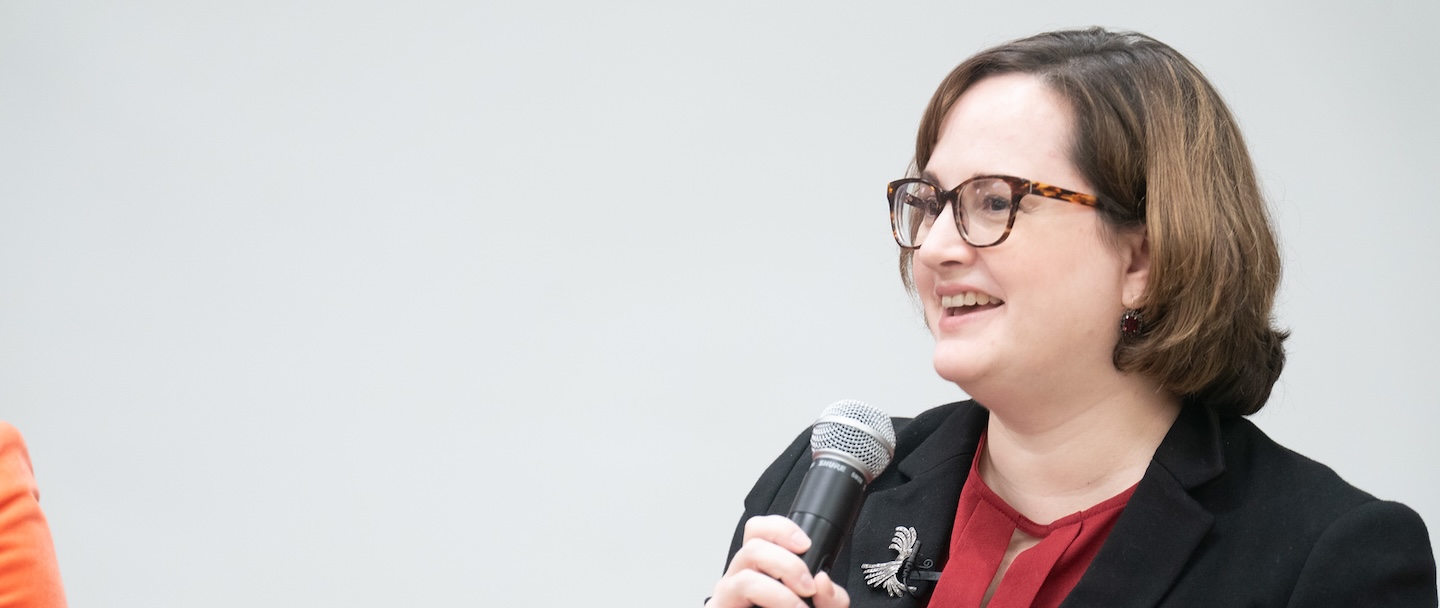Belmont music professor brings centuries-old stories to life for today's students
Picture this: A packed auditorium in Italy filled with local seven and eight-year-olds, each holding what looks like a soda bottle. But as the lights dim and a professional opera singer begins the soaring notes of "Nessun Dorma," something magical happens. The children join their voices to his, and suddenly those bottles reveal their secret — glued-on paper wings and tiny lights that dance like fireflies across the darkness as the kids become part of the performance itself.
For Dr. Ginny Lamothe, assistant professor of musicology, this wasn't just a beautiful moment to witness during one of her study abroad trips to Italy. It was a perfect example of what she's spent her career proving: that music history isn't trapped in dusty books, but alive and breathing all around us.
From "What's Musicology?" to Vatican Manuscripts
 Lamothe's path to becoming Belmont's resident time-traveling music historian, joining the faculty full time in 2018, started with a confession of ignorance. She always knew she’d go into music in some capacity but when one of her undergraduate professors first mentioned "musicology" as a major, her immediate response was, "What is that?"
Lamothe's path to becoming Belmont's resident time-traveling music historian, joining the faculty full time in 2018, started with a confession of ignorance. She always knew she’d go into music in some capacity but when one of her undergraduate professors first mentioned "musicology" as a major, her immediate response was, "What is that?"
That curiosity — combined with a talent for languages and the realization that her stage fright would prevent her music career from revolving around performing — led her down a rabbit hole that would take her from earning her master’s and doctorate degrees from UNC Chapel Hill to a Fulbright scholarship in Italy, where she spent a year researching 17th-century operas about saints' lives in archives most people only dream of accessing.
"My dissertation is now a reference book in the Vatican Library," she said with a mix of pride and amazement. "I looked at manuscripts that told stories about music as propaganda during the Thirty Years' War. These weren't just pretty songs — they were how people made sense of their world."
But for Lamothe, the real magic happens when she brings those discoveries back to her Belmont classroom.
Ancient History, Modern Classroom
In Lamothe's world, learning medieval music history might mean slipping on white gloves to touch actual 14th-century parchment, or finding yourself in a campus hallway learning to dance a 16th-century galliard alongside 26 classmates (plus five nursing students who got curious and joined in). She teaches everything from freshman music surveys to "Music to 1700" to the history of electronic and digital music — and in every class, she makes the past feel urgently present.
"On the first day, I tell them: nobody in this classroom will think the Middle Ages were the Dark Ages by the end of the semester," she said. "Because they were not." She gestured to her medieval astrolabe, a navigational instrument requiring advanced mathematics and astronomy. “Did unintelligent people create something this sophisticated? Obviously not.”
 This isn't just about correcting misconceptions — it's about hope. "Students can sometimes see everything happening in their lives like, 'This has never happened before. This is unprecedented. This is so scary,'" she said. "And I want them to find hope in history – to see that plagues come and go, wars come and go, and that doesn't mean you have to lose your love of beauty."
This isn't just about correcting misconceptions — it's about hope. "Students can sometimes see everything happening in their lives like, 'This has never happened before. This is unprecedented. This is so scary,'" she said. "And I want them to find hope in history – to see that plagues come and go, wars come and go, and that doesn't mean you have to lose your love of beauty."
When her students learn that there were once three different Popes all claiming legitimacy simultaneously, or that the composer Monteverdi had to reinvent his career multiple times, they start to see their own uncertainties differently.
"Nobody's career had this one single, specific trajectory of how it's supposed to be," she said. These historical composers had side gigs, moved cities and adapted to new opportunities — exactly what today's music students will likely face. It helps that her husband is also a faculty member in Belmont’s School of Music, so together they understand the realities of building a life in music.
The approach works. Her classes regularly attract students from across the University — partly because word gets around that she might bring a serpent to class (a massive, snake-shaped Renaissance wind instrument), but mostly because she transforms how students see both past and present.
"I want them to find hope in history – to see that plagues come and go, wars come and go, and that doesn't mean you have to lose your love of beauty."
Where Synthesizers Meet Saints
 Don't mistake Lamothe for someone trapped in centuries past. She's equally likely to geek out about the Fairlight CMI synthesizer that defined the “Stranger Things” soundtrack or dive deep into her current research on how the Wicked Witch of Oz has evolved from 1900 to the modern day "Wicked" musical — and what those changes reveal about women in power.
Don't mistake Lamothe for someone trapped in centuries past. She's equally likely to geek out about the Fairlight CMI synthesizer that defined the “Stranger Things” soundtrack or dive deep into her current research on how the Wicked Witch of Oz has evolved from 1900 to the modern day "Wicked" musical — and what those changes reveal about women in power.
"After 8 p.m., I'm banned from talking about synthesizers, the Tudors or the Holy Roman Empire," she laughed. “And my husband keeps adding topics to the list.”
Living History Abroad
But perhaps nowhere does Lamothe's philosophy come alive more than when she leads students abroad — places where she lived as a Fulbright scholar and where history isn't confined to textbooks. She developed Belmont's Maymester program in Rome, creating immersive experiences guided by someone who knows which archives hold centuries-old manuscripts and can navigate Italian bureaucracy when students need help.
"I love showing them what I love," she said. "And I love seeing them find things they love and tell me about them."
More importantly, these trips show students a different way of valuing art and education. In a country where seven-year-olds learn to sing "Nessun Dorma" in school and perform it with professional opera companies, where children become fireflies in the night with their glowing bottles, students see what's possible when a culture truly embraces music and art as essential to human flourishing.
Building Community, Not Competition
At the heart of Lamothe's approach — whether in a Nashville classroom or a Roman piazza — is something that sets Belmont apart: the belief that students are colleagues, not competitors. "Look at all these students around you," she tells her classes. "They are not your competition. They are your colleagues. They're the ones who are going to play on your recital, help you form a band, make the contacts you need to record your music, etc."
For prospective students wondering what their college experience might look like, Lamothe offers a glimpse of education as adventure — where touching medieval manuscripts and learning Renaissance dances aren't just assignments, but invitations into a larger human story. Where professors don't just teach subjects, but share passions. And where the past isn't dead history, but living hope for the future.
"You'll never know unless you try," she said, reflecting on her own journey from a young college student who didn't know what musicology was to a scholar whose work sits in the Vatican Library. "I would love to tell younger me: you're going to find something that you love, you're going to be able to go to amazing places."
For her students, that journey is just beginning.
Education as Adventure
Find yours at Belmont


